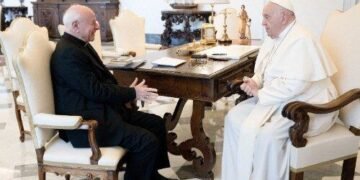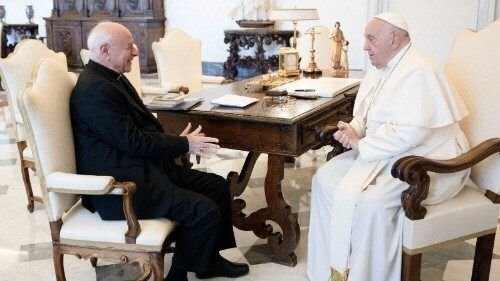By Charles Igwe
The Church remains firmly opposed to euthanasia and assisted suicide, standing in defense of the right to life for every person, particularly the most vulnerable, while promoting collaboration with political entities on end-of-life issues.
Archbishop Vincenzo Paglia, President of the Pontifical Academy for Life, emphasized this stance while clarifying points from the “Small Lexicon on the End-of-Life,” an 88-page glossary published by the Vatican Publishing House (LEV). The lexicon addresses various ethical issues surrounding end-of-life debates, including euthanasia, assisted suicide, palliative care, and cremation.
The pamphlet, released in early July, has recently attracted media attention, with some outlets suggesting that it signaled a shift in the Holy See’s position on these issues. However, in an interview with Vatican News, Archbishop Paglia stressed that the document is grounded in over 70 years of papal and Church teachings.
On Thursday morning, Archbishop Paglia presented a copy of the “Lexicon” to Pope Francis during an audience at the Apostolic Palace. The Pope, known for his consistent advocacy for the defense of life at all stages, reiterated his support for the ongoing work of the Pontifical Academy for Life.
Archbishop Paglia highlighted that the right to life must be defended in its entirety, especially for the weak, as a counter to the “throwaway culture” that often emphasizes self-sufficiency and autonomy at the expense of the vulnerable.
Regarding claims that the lexicon represents a shift by the Holy See toward allowing the suspension of nutrition and hydration, Archbishop Paglia referred to longstanding Church teachings. He noted that as far back as 1956, Pope Pius XII affirmed the permissibility of suspending ventilation in certain serious conditions. Additionally, in 2007, the Congregation for the Doctrine of the Faith recognized that treatments could be lawfully discontinued when they entail an “excessive burden or significant physical discomfort.” These criteria are central to defining disproportionate treatments, which may be suspended based on careful evaluation involving the patient whenever possible.
Archbishop Paglia made it clear that nothing has changed regarding the Church’s stance on euthanasia and assisted suicide, despite media interpretations to the contrary. The Church remains absolutely opposed to these practices, a position that Archbishop Paglia strongly supports. He acknowledged, however, that the Church also warns against unreasonable obstinacy in medical treatments, which can sometimes fail to prioritize patient-centered care. While life should never be intentionally shortened, the Church teaches that it is also important not to unduly obstruct the natural course of life.
The archbishop also addressed the concept of “legislative mediations” mentioned in the lexicon. He explained that there are no predetermined “acceptable mediations” on fundamental end-of-life issues. The goal is to achieve the highest possible common consensus, respecting different sensitivities and religious beliefs. While the Church plays a vital role in forming consciences, it does not draft laws; that is the responsibility of political bodies, with whom the Church seeks to collaborate for the common good.







































